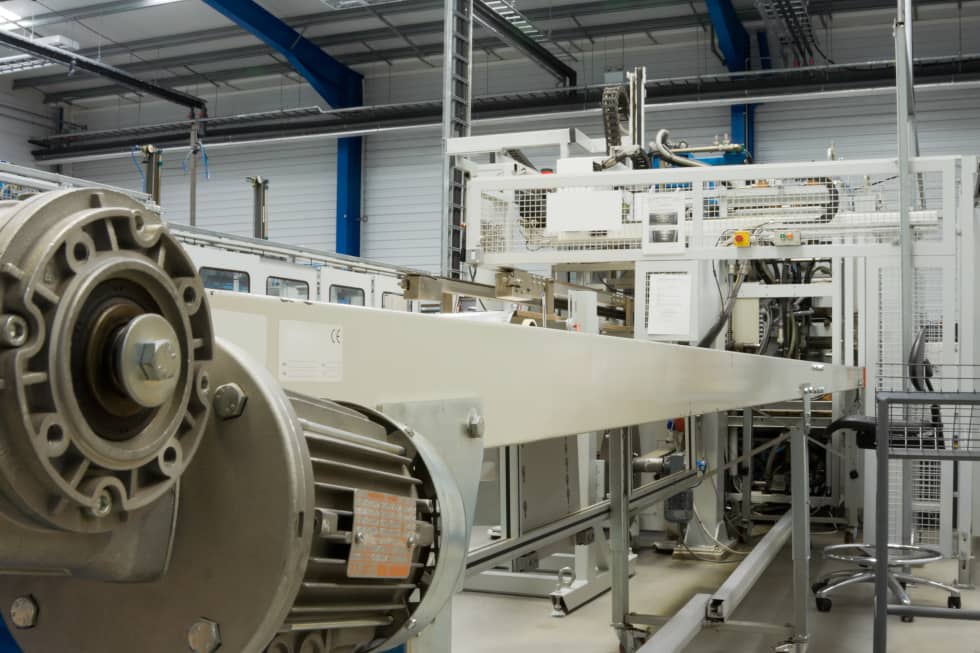The FSSC 22000 Certification Scheme Version 5.1 for Food Packaging Manufacturers is based on ISO 22000:2018 Food safety management systems – Requirements for any organization in the food chain, Technical Specification ISO/TS 22002-4:2013 Prerequisite programmes on food safety — Part 4: Food packaging manufacturing and the FSSC 22000 Certification Scheme Version 5.1 Requirements for Organizations to be Audited.
ISO 22000:2018 Food safety management systems
Requirements for any organization in the food chain
ISO 22000:2018 was developed within the ISO high level structure (HLS) to improve alignment between ISO management system standards. This similarity makes integrating the Quality requirements of ISO 9001 into an ISO 22000 Complaint Food Safety Management System far easier, and vice versa. Key Elements of ISO 22000:2018 (Sections 4 to 10) requirements for a Food Safety Management System by section are:
- 4 Context of the organization
- 4.1 Understanding the organization and its context
- 4.2 Understanding the needs and expectations of interested parties
- 4.3 Determining the scope of the food safety management system
- 4.4 Food safety management system
- 5 Leadership
- 5.1 Leadership and commitment
- 5.2 Policy
- 5.2.1 Establishing the food safety policy
- 5.2.2 Communicating the food safety policy
- 5.3 Organizational roles, responsibilities and authorities
- 6 Planning
- 6.1 Actions to address risks and opportunities
- 6.2 Objectives of the food safety management system and planning to achieve them
- 6.3 Planning of changes
- 7 Support
- 7.1 Resources
- 7.1.1 General
- 7.1.2 People
- 7.1.3 Infrastructure
- 7.1.4 Work environment
- 7.1.5 Externally developed elements of the food safety management system
- 7.1.6 Control of externally provided processes, products or services
- 7.2 Competence
- 7.3 Awareness
- 7.4 Communication
- 7.5 Documented information
- 8 Operation
- 8.1 Operational planning and control
- 8.2 Prerequisite programmes (PRPs)
- 8.3 Traceability system
- 8.4 Emergency preparedness and response
- 8.5 Hazard control
- 8.5.1 Preliminary steps to enable hazard analysis
- 8.5.2 Hazard analysis
- 8.5.3 Validation of control measure(s) and combinations of control measures
- 8.5.4 Hazard control plan (HACCP/OPRP Plan)
- 8.6 Updating the information specifying the PRPs and the hazard control plan
- 8.7 Control of monitoring and measuring
- 8.8 Verification related to PRPs and the hazard control plan
- 8.9 Control of product and process nonconformities
- 9 Performance evaluation
- 9.1 Monitoring, measurement, analysis and evaluation
- 9.1.2 Analysis and evaluation
- 9.2 Internal audit
- 9.3 Management review
- 10 Improvement
- 10.1 Nonconformity and corrective action
- 10.2 Continual Improvement
- 10.3 Update of the food safety management system
Technical Specification ISO/TS 22002-4:2013 Prerequisite programmes on food safety — Part 4: Food packaging manufacturing is intended to be used when establishing, implementing, and maintaining the PRPs specific to food packaging manufacturing activities.
Technical Specification ISO/TS 22002-4:2013 Prerequisite programmes on food safety — Part 4: Food packaging manufacturing specifies detailed requirements to be specifically considered in relation to ISO 22000:2018, 8.2 Prerequisite Programmes:
- a) construction and layout of buildings and associated utilities;
- b) layout of premises, including workspace and employee facilities;
- c) supplies of air, water, energy and other utilities;
- d) pest control, waste and sewage disposal and supporting services
- e) the suitability of equipment and its accessibility for cleaning and maintenance
- f) supplier approval and assurance processes (e.g. raw materials, ingredients, chemicals and packaging)
- g) reception of incoming materials, storage, dispatch, transportation and handling of products
- h) measures for the prevention of cross contamination
- i) cleaning and disinfecting
- j) personal hygiene
- k) product information/consumer awareness
- l) others, as appropriate
In addition, this ISO/TS 22002-4:2013 adds other aspects which are considered relevant to food packaging manufacturing operations including:
- 1) Measures for the Prevention of Contamination
- 2) Rework
- 3) Withdrawal procedures
- 4) Food Packaging Information and Customer Communication
- 5) Food Defence and Bioterrorism
Food Safety System Certification 22000 Scheme Version 5.1 November 2020 Part 2 Requirements for Organizations to be Audited
To meet the needs of the key stakeholders and to ensure an adequate control of food safety, specific additional FSSC requirements for the food safety management system are included in the Scheme. These may be elaborations of the clauses in ISO 22000 and technical specifications for sector PRPs or additional requirements.
The FSSC 22000 Scheme Additional Requirements are:
- 2.5.1) Management of services and purchased materials
- 2.5.2) Product labelling
- 2.5.3) Food defense
- 2.5.4) Food fraud mitigation
- 2.5.5) Logo use
- 2.5.6) Management of allergens (categories C, E, FI, G, I & K)
- 2.5.7) Environmental monitoring (categories C, I and K)
- 2.5.8) Formulation of products (category D only)
- 2.5.9) Transport and Delivery (Category FI)
- stock rotation system that includes FEFO principles
* NEW *2.5.11 Hazard Control and Measures for Preventing Cross-Contamination (Food Chain Categories C & I)
- For food chain category I, (Packaging) specified requirements in place in case packaging is used to impart or provide a functional effect on food (e.g. shelf life extension).
* NEW *2.5.12 PRP Verification (Food Chain Categories C, D, G, I & K)
For food chain categories C, D, G, I and K, site inspections/PRP checks
* NEW *2.5.13 Product Development (Food Chain Categories C, D, E, F, I & K)
A product design and development procedure for new products and changes
- Evaluation of the impact of the change on the FSMS
- Consideration of the impact on the process flow
- Resource and training needs
- Equipment and maintenance requirements
- The need to conduct production and shelf-life trials
* NEW *2.5.14 HEALTH STATUS (FOOD CHAIN CATEGORY D)
* NEW * 2.5.15 Requirements for Organizations with Multi-Site Certification(Food Chain Category A, E, FI & G)
* NEW * in Food Safety System Certification 22000 Scheme Version 5.1 November 2020 Part 2 Requirements for Organizations to be Audited. See www.fssc22000.com for more details.

